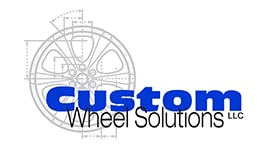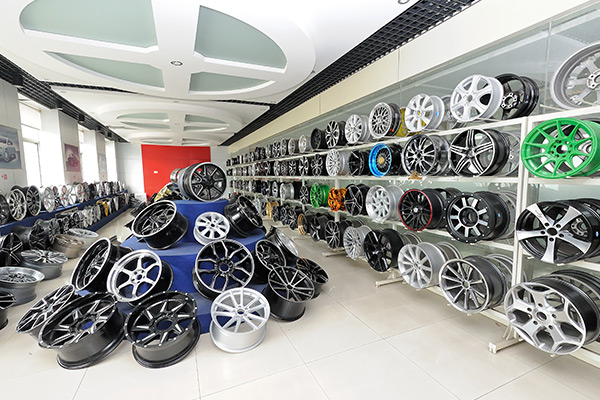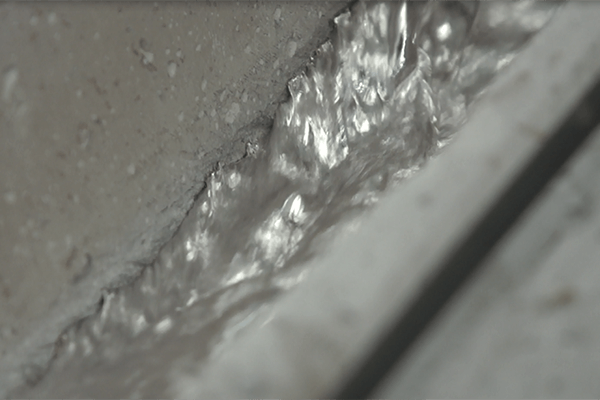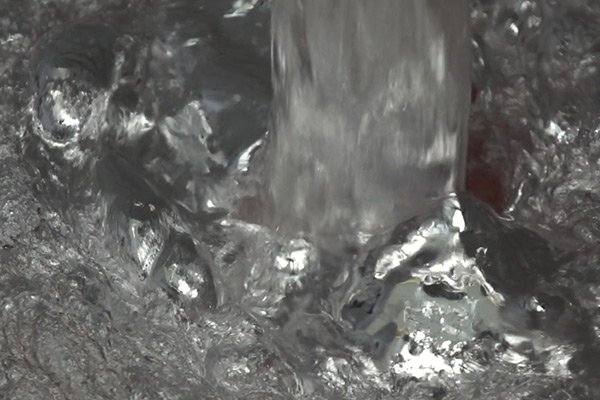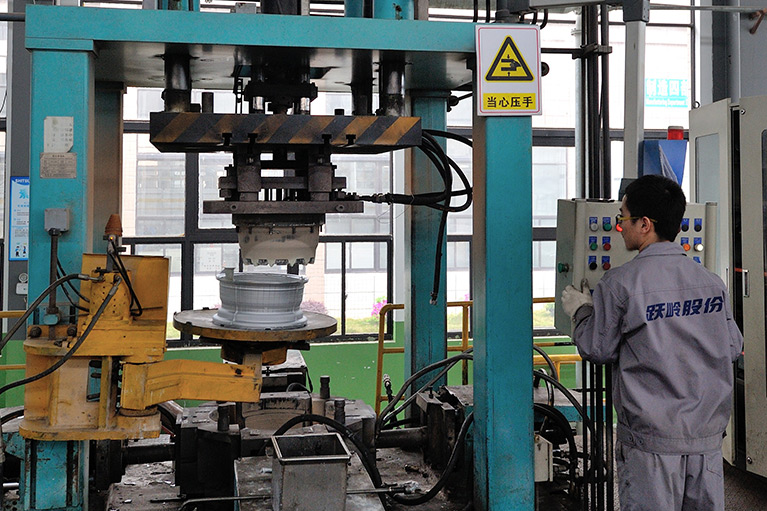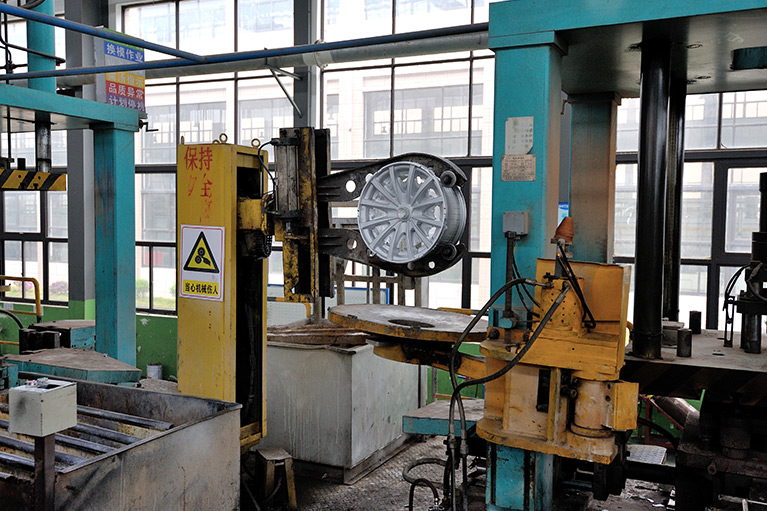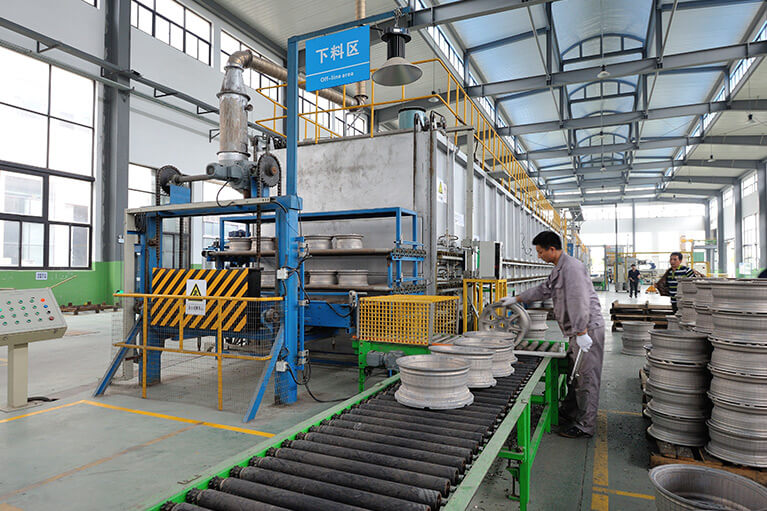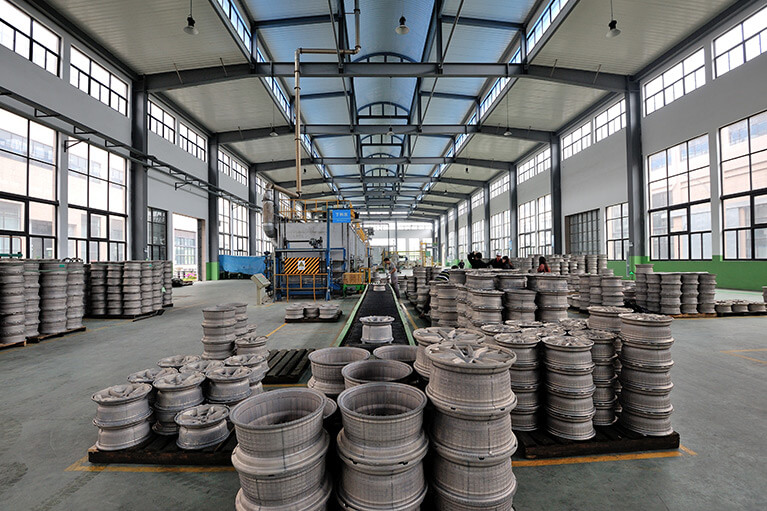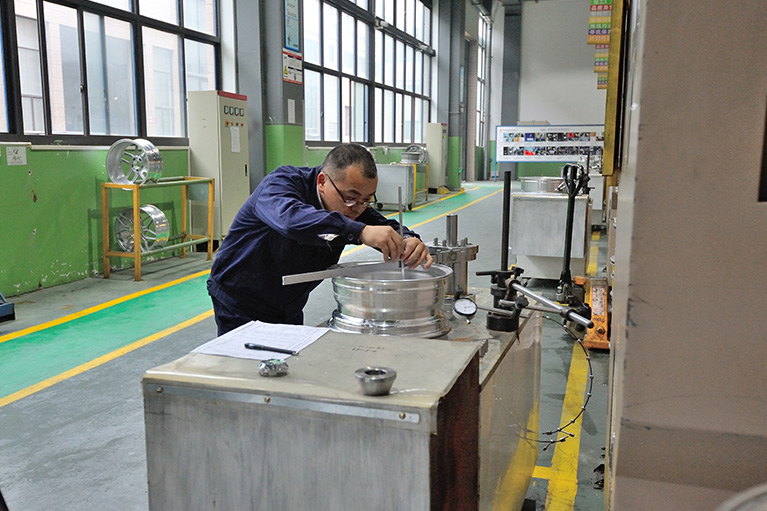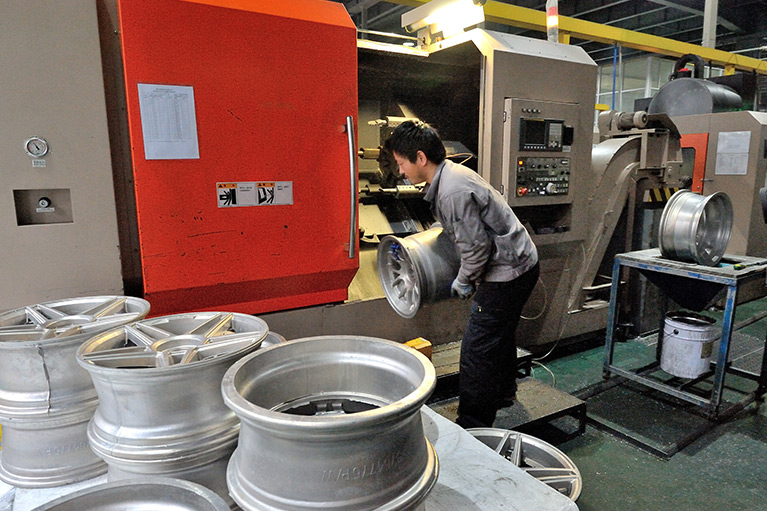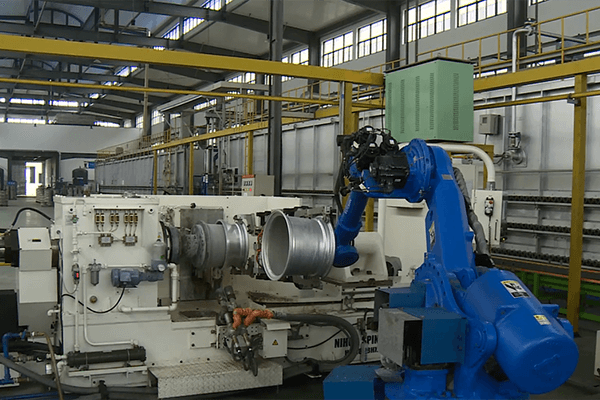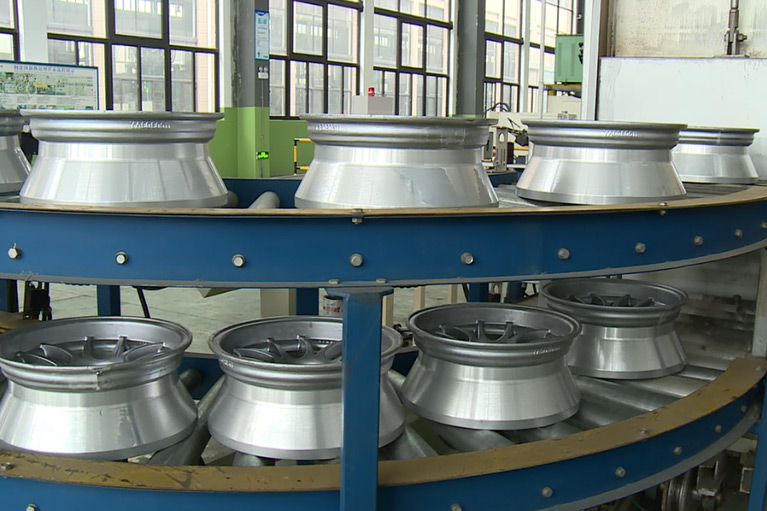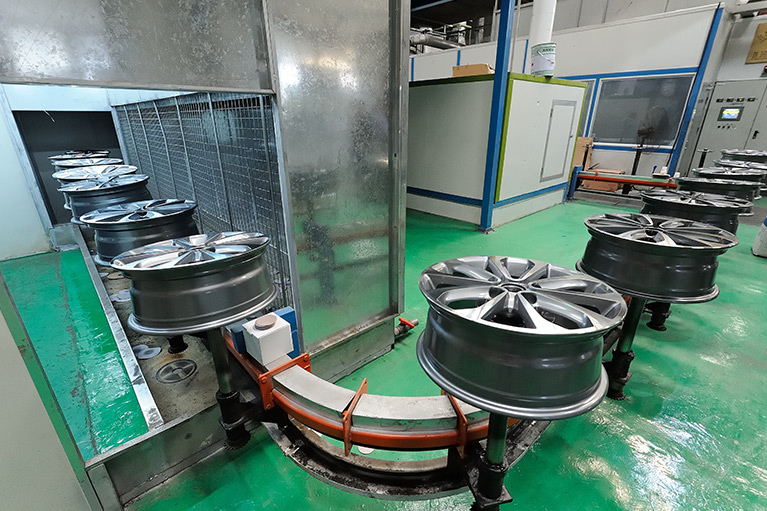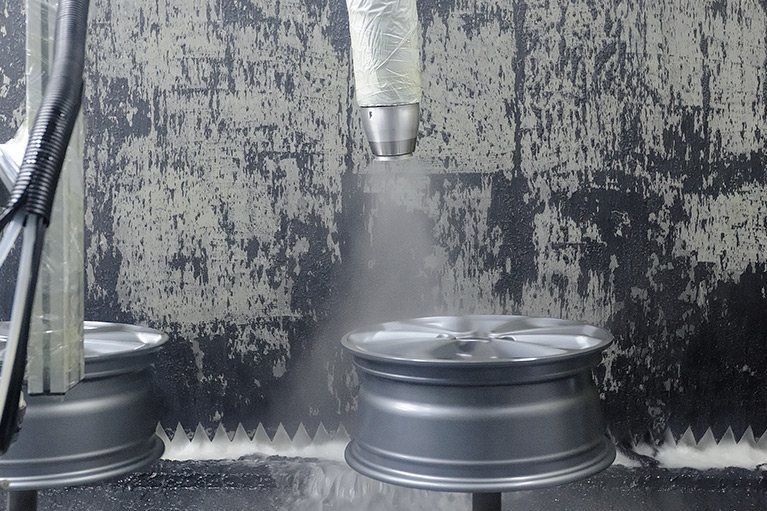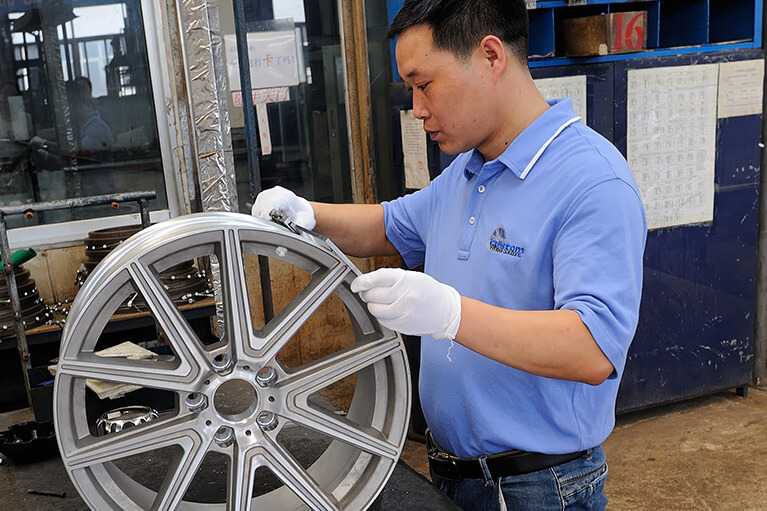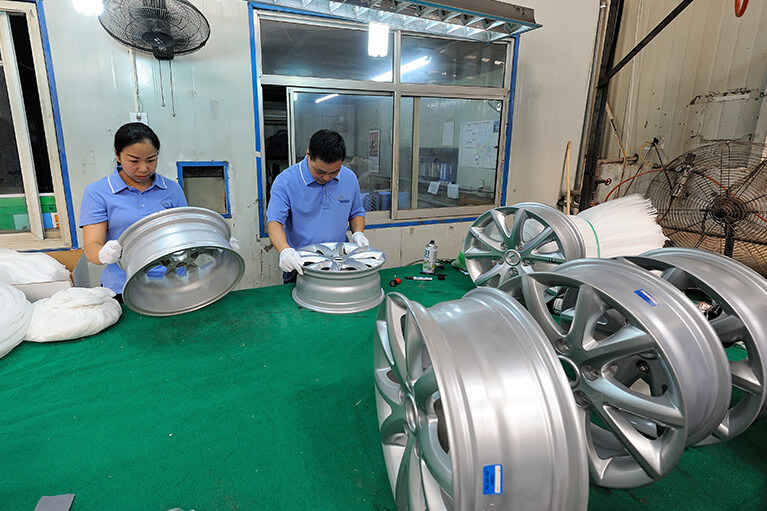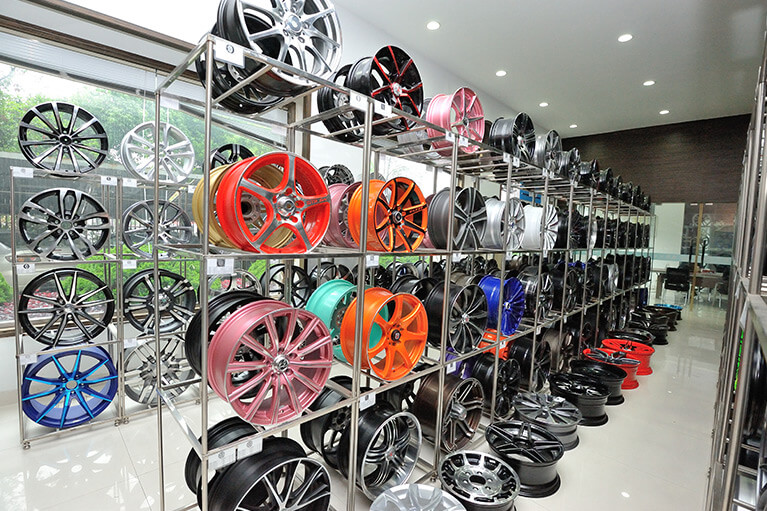Custom Wheel Solutions, LLC (CWS) can supply your private label wheel program using the latest in casting technologies utilizing low pressure, counter pressure or gravity casting methods. CWS manufactures wheels using all current casting processes and the most technologically advanced casting equipment available on the market. Wheel size and design complexity are what typically drive the most efficient and cost effective manufacturing and casting process for your wheel. For nearly 3 decades, CWS has been involved in all facets of new product design and development, together with the requisite engineering of a variety of products that benefit from the enhanced material properties derived from the casting process. Having built a number of factories all over the world, CWS management has “hands on” experience in designing, constructing and managing complete turnkey forged, cast and flow forming manufacturing facilities. Our experience includes the automotive aftermarket, RV market, military and automotive OEM's (original equipment manufacturers, FORD, GM FCA, Toyota, etc.) as well as producing wheels many racing venues. CWS management has more combined experience in forging, casting and flow forming technologies than any other contract manufacturing source in the world today.
ALUMINUM PROCESSING
As with all cast wheels, the initial casting process involves melting a specific aluminum alloy (most commonly A356) from certified ingots supplied by a primary aluminum producer. The ingots are melted in a large furnace and transferred to a crucible where further augmentation to the allow takes place. Specific trace elements are added to ensure the final wheel meets specific material properties, and nitrogen is added to eliminate unwanted moisture. Once the alloy content and specific gravity are verified through lab samples, the material is transferred to individual casting stations for use in the casting process.
CASTING
The verified aluminum alloy is transferred by crucible to each casting machine that contains the customer’s mold for each specific wheel style. Molten aluminum is then injected into the closed mold under low pressure from the bottom of the mold thus allowing trapped gasses to escape from the top as the mold fills. Following a preset dwell time determined by computer controls, the various parts of the mold open hydraulically revealing the now hardened cast aluminum wheel inside. Robotic arms remove the wheel from the mold and place it immediately into a water quench to cool the casting. In some cases that are deemed appropriate based upon the nature and complexity of the design, CWS will utilize gravity cast methods instead of the more commonly preferred low pressure, or counter pressure casting methods as this process has been proven to yield consistently higher quality castings for unique and “hard to cast” designs with undercuts, staggered parting lines and other complex tooling challenges.
HEAT TREAT
Once the cast parts have cooled to room temperature, each wheel must then proceed through the heat treat process in order to obtain the desired material properties for hardness and tensile strength. The first step in the heat treat process is to bring the casting up to a preset temperature in a heat treat oven for a prescribed period of time…usually about 5-6 hours. Immediately following that process, the casting is “quenched” in a tank of water to harden the metal and set the material properties. Following the quench cycle the wheel will once again enter a heat treat oven a a lower temperature for a shorter period of time to “age” the material properties and insure that those properties remain fixed at the desired specifications…which is consistent with a Rockwell T6 hardness, for maximum durability.
MACHINING
Each casting is then machined to the specifications established on the final set of drawings approved by each customer. All elements of the machining process are addressed through the use of highly accurate computer controlled machines…a process known in the industry as CNC machining. During this process, it is not uncommon that every surface of the wheel may be machined depending on the design criteria of the wheel. Some wheels will even receive a second operational step in machining following finishing. Final tolerances with be checked on all critical surfaces including, PCD, lug hole configuration, center bore diameter, offset, bead seat conformity to industry standards, rim flange configuration per TR&A/SAE, and any other final details that are critical to the design and integrity of the wheel.
FLOW FORMING
After the first of two machining processes, the initially turned part is sent to the flow forming operation. The wheel is captured between two mandrels that secure it to the flow forming headstock. Roller dies then apply pressure as necessary to literally “move the material” to form the profile of the barrel section and inner rim flange of the wheel. No material is removed during this process…the material is only moved or “flowed” into the desired profile like clay on a potters wheel. However, through this process, the material grain structure is elongated and compressed. These changes in the material properties offer the same attributes as a forged wheel, thus making the resulting part lighter and stronger than a typical cast wheel of the same size. The unique capabilities of the flow forming process allow a significant improvement in material properties with a corresponding reduction in weight.
FINISHING
Each wheel receives a very durable finish according to the specifications of the customer in order to protect the wheel from the harsh environment in which it must perform. All CWS factories are capable of providing virtually any finish requirement demanded by its customers. In painted finishes, we have capabilities for powder coating, liquid painting and a variety of clear coats from matte to high gloss, all with UV protections built into the formulations. We also offer unique finishes such as E-coat, DOW coatings, mil-spec CARC and heat signature reduction films as well as anodized finishes to meet specific requirements. CWS can also support, polished, mirror bright machined and PVD. All of these finishes are possible, but require detailed planning during the design stages.
FINAL INSPECTION
After final manufacturing and finishing, each wheel is then taking to a special inspection station where CWS inspectors carefully review each wheel to insure that it meets both CWS quality requirements and those of the customer. Upon final inspection, every wheel received a CWS inspection label indicating it was reviewed and passed all quality requirements. This quality label is the customer’s assurance that each wheel was QC checked before packaging and shipment.
CWS customers typically demand the highest level of product engineering and production quality. We offer a level of service above what others in the industry consider "acceptable". To CWS, our job is not done until our customer is satisfied. We make no exceptions to getting the job done right. Hence our name…"Custom Wheel Solutions" …we solve problems so that you don’t have to. The end result…a privately manufactured wheel that you are proud to put your company name on.
